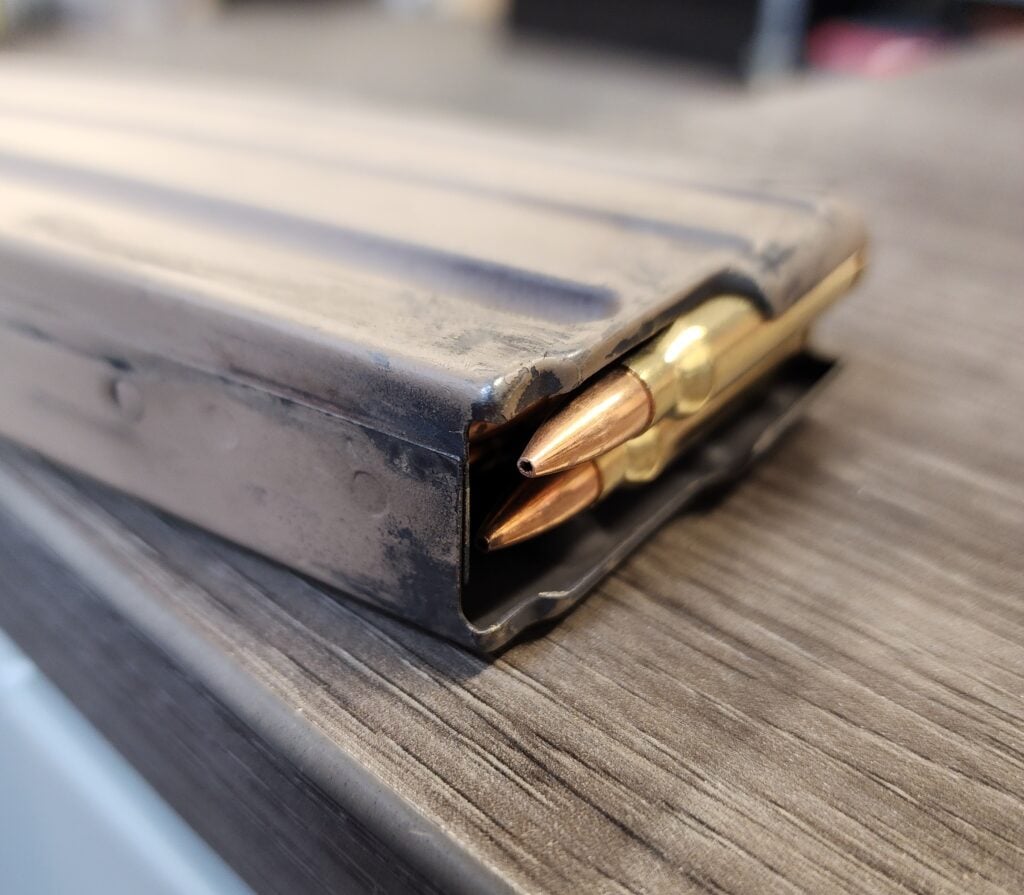Bullet Grain Weight
In the world of firearms, bullet grain weight is a critical factor that can significantly impact the performance and effectiveness of a shot. Whether you’re a seasoned shooter or just getting started, understanding the concept of bullet grain weight is essential. In this blog, we will explore what bullet grain weight is, its significance, and how it influences firearm performance.

Bullet Grain Weight Defined
Bullet grain weight refers to the weight of a bullet, typically measured in grains. One grain is equivalent to approximately 1/7000th of a pound. Bullet grain weight can vary significantly, with common weights ranging from 25 to 250 grains or even more, depending on the caliber and type of ammunition. For example, a typical 9mm bullet might weigh 115 grains, while a .308 Winchester bullet for a hunting rifle might weigh 150 grains or more.
Significance of Bullet Grain Weight
The bullet grain weight is a crucial factor because it directly affects the ballistic performance of the bullet. The grain weight influences several key aspects, including:
- Muzzle Velocity: Lighter bullets typically have higher muzzle velocities, which means they travel faster when they leave the barrel. Heavier bullets have lower muzzle velocities. The choice between a lighter or heavier bullet depends on the specific application, whether it’s target shooting, hunting, or self-defense.
- Energy Transfer: Heavier bullets often transfer more energy upon impact, making them a better choice for hunting larger game. Lighter bullets, on the other hand, may be preferred for target shooting due to their reduced recoil.
- Bullet Trajectory: The bullet’s weight affects its trajectory. Lighter bullets tend to have flatter trajectories, while heavier bullets may exhibit more drop over distance. Shooters must consider these factors when choosing the right bullet for their intended purpose.
- Recoil: The bullet grain weight has a direct influence on the recoil experienced by the shooter. Lighter bullets generate less recoil, making them more manageable for some shooters. Heavier bullets produce greater recoil, which can affect accuracy and comfort.
- Bullet Penetration & Expansion: In hunting scenarios, the bullet’s weight can impact its penetration capabilities. Heavier bullets may penetrate deeper, making them more suitable for larger game, while lighter bullets may expand rapidly and create larger wound channels.
Choosing the Right Bullet Grain Weight
Selecting the appropriate bullet grain weight is a matter of balancing several factors:
- Purpose: Determine the primary purpose of your ammunition. Is it for self-defense, target shooting, or hunting? Different applications require different bullet weights.
- Caliber: The caliber of your firearm often dictates the available bullet grain weights. Make sure you choose bullets that are compatible with your firearm.
- Range: Consider the distance at which you’ll be shooting. Lighter bullets may be suitable for shorter ranges, while heavier bullets are better for long-range shooting or hunting.
- Recoil Tolerance: Your own tolerance for recoil is a significant factor. If you’re sensitive to recoil, you might opt for lighter bullets, even if you’re using your firearm for hunting. Also factory in pistols recoil springs may not be able to handle certain grain weights and pressures.
- Local Regulations: Some hunting regulations may specify minimum bullet grain weights for specific game. Be sure to comply with local laws and guidelines.
- Rifling or Barrel Twist: Not all 5.56x45mm was created equal. Some grain weights of 5.56 do not stabilize well in certain barrel lengths and twists. There are plenty of tabulated data on this on Google.

In conclusion, understanding bullet grain weight is pivotal to making informed decisions about your firearm and ammunition choices. The weight of the bullet significantly influences various aspects of performance, from velocity to recoil and energy transfer. By considering your specific needs and the intended purpose of your firearm, you can make more informed choices when selecting the right bullet grain weight. Pistols may need different recoil springs to cycle different bullet grain weights and pressures. Rifles may stabilize certain grain weights and pressures better than others. This also comes down to barrel length, barrel twist, specific loads. Whether you’re a recreational shooter or a seasoned hunter, your choice of bullet grain weight can make all the difference in your shooting experience.
If you like what you see, please check out other ANR Media by following the link below! https://linktr.ee/ANRDESIGNLLC
Here you can find the ANR Design Website, YouTube, Facebook Business Page, Twitter, and Twitch Accounts! Podcast Streaming!
Amazon Music https://music.amazon.com/podcasts/7b31bd97-c8b0-4926-be87-b7a073f07976/ANR-Unholstered
Spotify https://open.spotify.com/show/1AKResNkCXDDJpgvCgSJFc
Google https://podcasts.google.com/feed/aHR0cHM6Ly9mZWVkcy5zaW1wbGVjYXN0LmNvbS84dU53WjV4OQ
Apple https://podcasts.apple.com/us/podcast/anr-design-unholstered/id1561628365

